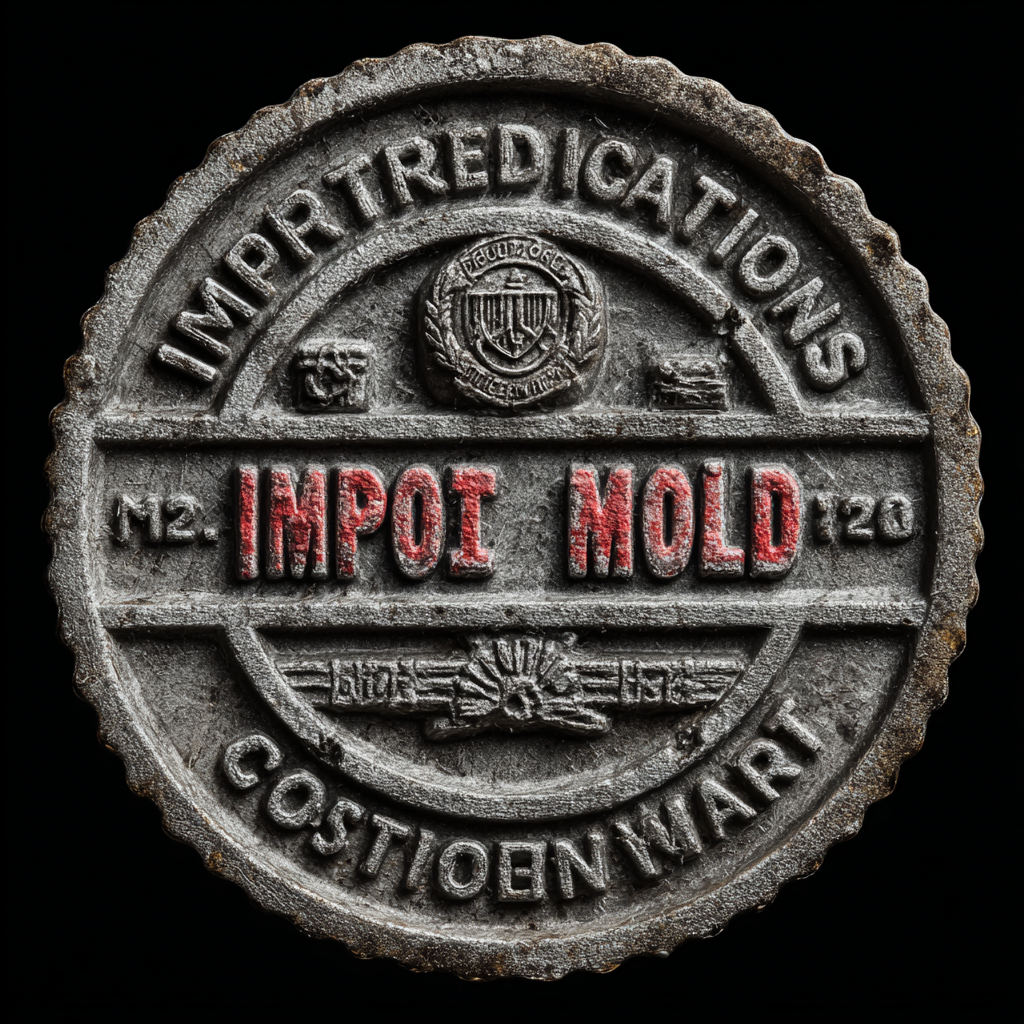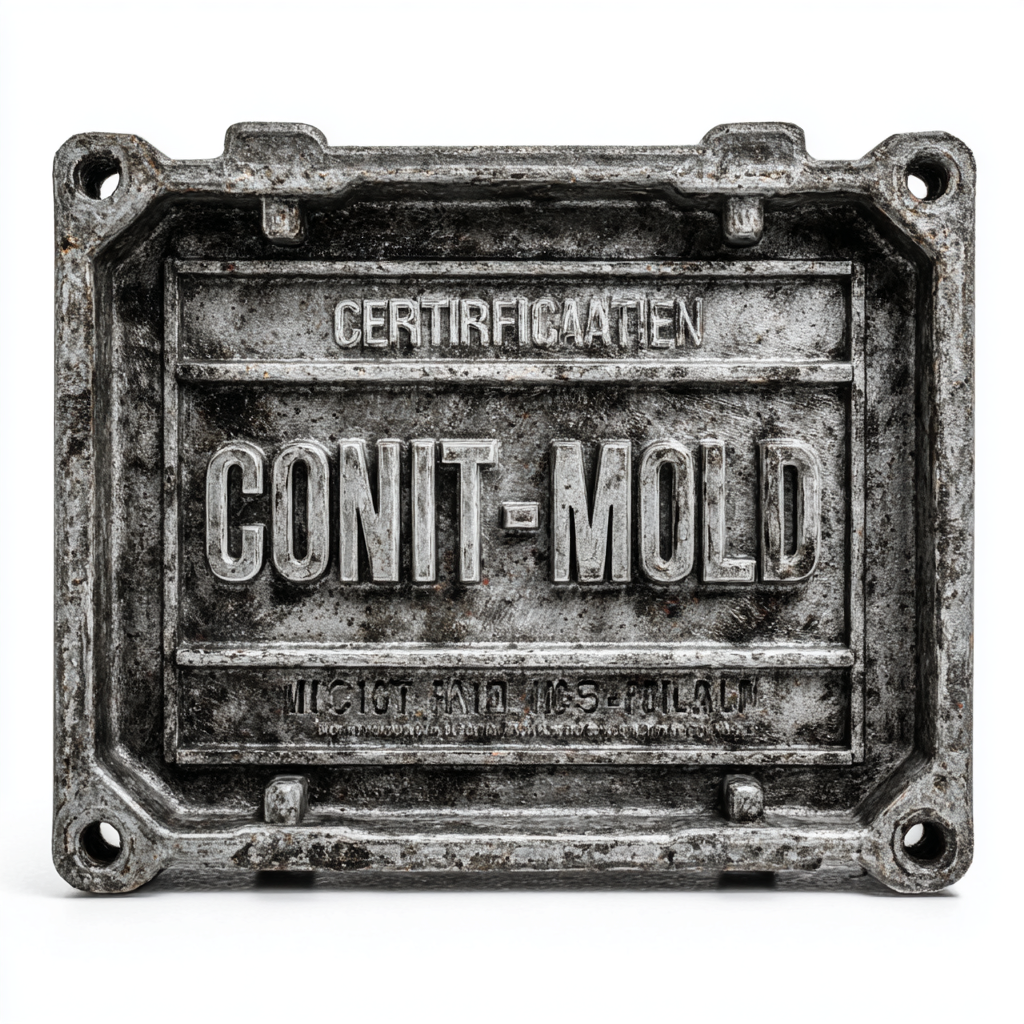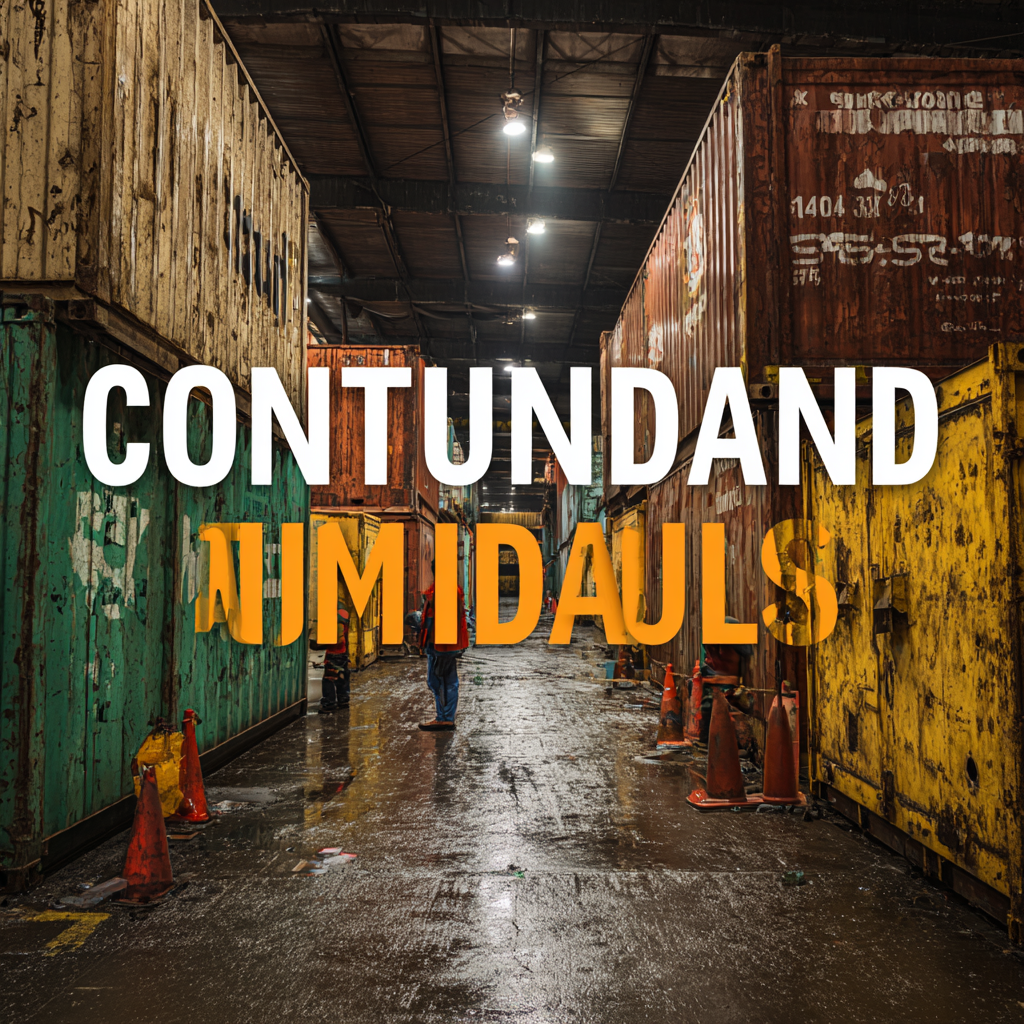The global container mold industry is experiencing significant growth, driven by increased demand for high-quality packaging solutions across various sectors. According to a recent market analysis by Market Research Future, the container mold market is projected to reach a valuation of approximately $10 billion by 2025, reflecting a compound annual growth rate (CAGR) of 6.5%. As trade barriers continue to evolve, understanding import/export certifications becomes crucial for businesses looking to compete on an international scale. These certifications not only ensure compliance with regulatory standards but also help in guaranteeing product quality and safety during cross-border transactions.

For manufacturers and exporters of container molds, navigating this complex landscape of certifications can be the key to unlocking new markets and maximizing profitability. This blog will explore the essential certifications required in the container mold industry, offering insights into how businesses can leverage this knowledge to enhance their global operations.
Import export certifications are crucial in the container mold manufacturing sector, ensuring that products meet international quality and safety standards. These certifications demonstrate a company's commitment to compliance with regulations, which is essential for building trust with global clients. Manufacturers seeking to expand their market reach must navigate a myriad of certification processes that dictate how their products are perceived in foreign markets. Properly certified products can significantly reduce delays in customs and facilitate smoother transactions, which is key for maintaining a competitive edge.
Moreover, import export certifications can enhance product quality and innovation within the container mold industry. By adhering to rigorous standards, manufacturers are encouraged to adopt advanced technologies and best practices, ultimately resulting in superior designs and functionalities. This not only addresses customer demands for higher quality but also aligns with sustainability goals, as many certification processes now incorporate environmentally friendly practices. As the industry continues to evolve, the role of certifications will only grow in importance, shaping the future landscape of container mold manufacturing.
This chart illustrates the number of certifications obtained by container mold manufacturers across different categories. The data reflects the importance of various certifications in the industry, emphasizing the key certifications that enhance international trade compliance.
The container mold industry is heavily regulated, requiring compliance with various certifications to ensure quality and safety in production. Key certifications often include ISO 9001, which focuses on quality management systems, and ISO 14001 for environmental management. These certifications not only bolster a company’s credibility but also enhance operational efficiency, particularly in the manufacturing of plastic products like crates and battery containers. For instance, the IMARC Group's recent report on the plastic crates manufacturing plant delineates industry trends and setup costs, emphasizing the importance of adhering to these standards for sustained growth.
Moreover, the market for in-mold labels, projected to reach a size of USD 2.31 billion by 2023, underscores the significance of utilizing certified processes within the container mold realm. The expected growth at a CAGR of 4.6% from 2024 to 2030 reflects the increasing demand for sustainable and innovative packaging solutions, which are forged through technically proficient and certified manufacturing practices. Thus, securing the right certifications not only complies with regulatory requirements but also opens avenues for market competitiveness and innovation, essential for thriving in today's rapidly evolving industry landscape.

Navigating international trade regulations can be complex, especially for container mold exporters facing recent market turbulence. In light of heightened tariffs imposed by the U.S. on Chinese goods—reaching up to 145%—many exporters are encountering stalled orders and containers left stranded at docks. Recent reports indicate that Shanghai and Suzhou ports are now offering three months of free storage to help alleviate the financial burden of container retention, a concern that is particularly pressing amid fluctuating trade dynamics.

According to industry data, the first four months of 2023 saw the Ma'anshan Comprehensive Bonded Zone achieve a trade volume of over $400 million, illustrating growth even in uncertain environments. With the global container shipping indices experiencing a decline from the soaring rates earlier this year, it’s crucial for exporters to adapt their strategies. A proactive approach to understanding import-export certifications and complying with international regulations can serve as a competitive advantage. As global demand rebounds heading into 2024, exporters who stay informed on regulatory changes will be better positioned to navigate these challenges successfully.
As the container mold industry continues to expand, understanding the future trends in import and export certifications will be crucial for businesses looking to thrive in a global market. According to a report by Global Industry Analysts, the container mold market is projected to reach $4 billion by 2027, indicating a robust growth trajectory. This increase is likely to drive a demand for more stringent certification processes, as manufacturers seek to ensure compliance with international standards, thereby boosting product quality and safety.
One emerging trend is the move towards digital certification systems. In recent years, over 75% of industry players have voiced the need for a streamlined certification process that minimizes delays and enhances transparency. The use of blockchain technology is being explored as a potential solution to track certifications in real-time, providing stakeholders with instant access to documentation and compliance status. This digitization will not only facilitate smoother import and export operations but also foster greater collaboration among manufacturers, regulatory bodies, and distributors globally.
As such trends become more prevalent, companies that adapt early to these changes will likely gain a competitive advantage in the international container mold market.
In the rapidly evolving container mold industry, achieving and maintaining compliance with import export certifications is essential for sustained growth and competitiveness. Best practices include understanding the specific certification requirements based on target markets, such as ISO standards, as well as adhering to local regulations and safety protocols. Companies must invest in robust quality management systems that not only facilitate compliance but also enhance operational efficiency, ensuring that products meet both domestic and international standards.
Another critical aspect to consider is the integration of emerging technologies in production processes. Automation and real-time monitoring can significantly enhance quality control and traceability throughout the supply chain. Additionally, industry players should stay informed about current developments, such as the strategic approaches being taken to address environmental concerns, including the management of substances like PFAS in packaging. Adopting these practices will not only help in achieving compliance but also position companies favorably in an increasingly environmentally-conscious market landscape.
| Certification Type | Issuing Authority | Compliance Requirements | Renewal Frequency | Associated Costs |
|---|---|---|---|---|
| ISO 9001 | International Organization for Standardization | Quality Management System | Every 3 years | $2,500 - $5,000 |
| ISO 14001 | International Organization for Standardization | Environmental Management System | Every 3 years | $2,000 - $4,500 |
| CE Marking | European Union | Product Safety and Compliance | On product update | $1,000 - $3,500 |
| RoHS | European Union | Restriction of Hazardous Substances | On product update | $800 - $2,000 |
| FDA Registration | Food and Drug Administration (USA) | Food Safety Standards | Annually | $250 - $1,500 |
